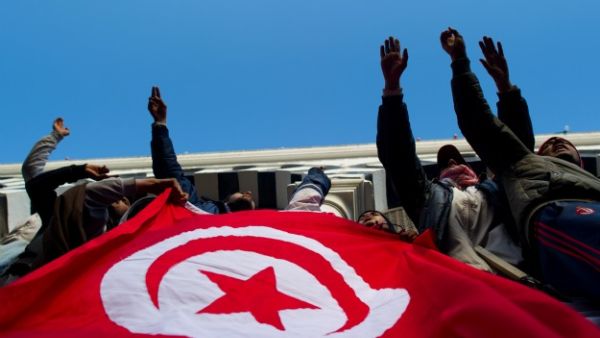The world is angry with Kais Saied, the Tunisian president, for his dissolution of the Supreme Judicial Council of the country.
The fact that he has appointed a new temporary judicial council is no comfort for many feel, locally and internationally, the president is reaching his limits and on the point of reverting to autocratic rule akin to that of the Zine El Abidine Ben Ali who long governed Tunisia prior 2011.
While the president wants to set Tunisia on the road to prosperity his military-coup-like actions which he took last July by freezing parliament and ruling by decree with an eventually-appointed government by him is surely not the way to go about doing things and goes at the very heart of undermining democracy something which he is well aware of as a former professor of constitutional law.
In a new decree, Tunisia's President Kais Saied has granted himself additional powers to rule over a reformed Supreme Judiciary Council ⤵️ https://t.co/bhgW3oqWS6
— Al Jazeera English (@AJEnglish) February 13, 2022
Although, he has just appointed a new temporary Judicial Council, his actions are being seen as dark days ahead for Tunisia, a country that has been proud as a starter of the Arab Spring in late 2010/early 2011 and seen for the last 10 years as the state that made democratisation in as a relatively successful development despite the raucous and uproar of parliamentarians.
His last act as the suspension of the country's Supreme Judicial council maybe the last nail in the coffin of Tunisian democracy as has been practised. While he is on record of saying he wants to put things right - end political bickering, lower recriminations, get the economy moving, lowering unemployment, shrinking the spiralling debt, his last actions are a chilling reminder of the George's Orwell 1984 and the big brother is watching you scenario!
His attack on the Islamists and their MPs coupled now with dissolution of the Supreme Judicial Council that was appointed in 2015, and acts as an independent body watching and observing the work of the Judiciary is a blow to the Tunisian constitutional old-adage of the separation of powers and the balance between the executive, legislature and judiciary.
In a bid to reform, modernise and reinvigorate, Saied, it is feared is going about it the wrong way. The United Nations is flabbergasted, the Americans are worried, Europe with its different countries and institutions can't believe what is happening in a country who has a populist president who was elected in 2019 with a 73 percent majority and provided refreshing hope.
#Tunisia First photos from today's protests in Mohammed V avenue, calling for the independence of the judiciary and the fall of Saied's coup. pic.twitter.com/FmKm6qBm3f
— Tunisia Pulse (@PulseTunisia) February 13, 2022
Saied was on a winning ticket and maybe still is though, that majority, has been greatly dented through its daring acts. With parliament frozen, him ruling by decree, and the security apparatuses increasing their powers of arrests, the man is consolidating his powers for change and prosperity that is unfortunately not coming and could quickly become a pipe dream.
Today numerous local NGs, groups including the Judges Association and the Young Magistrates Association are worried about the state of development and what will happen to them and their law offices. The UN High Commissioner for Human Rights, Michelle Bachelet has already expressed great worry. She said the dissolution "would seriously undermine the rule of law". Similarly Amnesty International said the last action would create "a grave threat to fair trial rights in Tunisia".
The fact that a new temporary council is now established may not dampen the fears because like Tunisia's current government, the Judicial Council is "cherry-picked" by the president - its like he appoints and he dismisses. The fact this has direct bearings on questions of loyalty increase fears, suppresses dissent and muzzles free speech.
But the president is indeed consolidating powers in his hands. He doesn't mind that because, and according to him, Article 80 of the Constitution - a document which he wants to change and which is an irony in itself - allows him to rule by decree and hence dissolve the Supreme Judicial Council. This is a point of contention but never mind that because what he is doing is best for his country!








